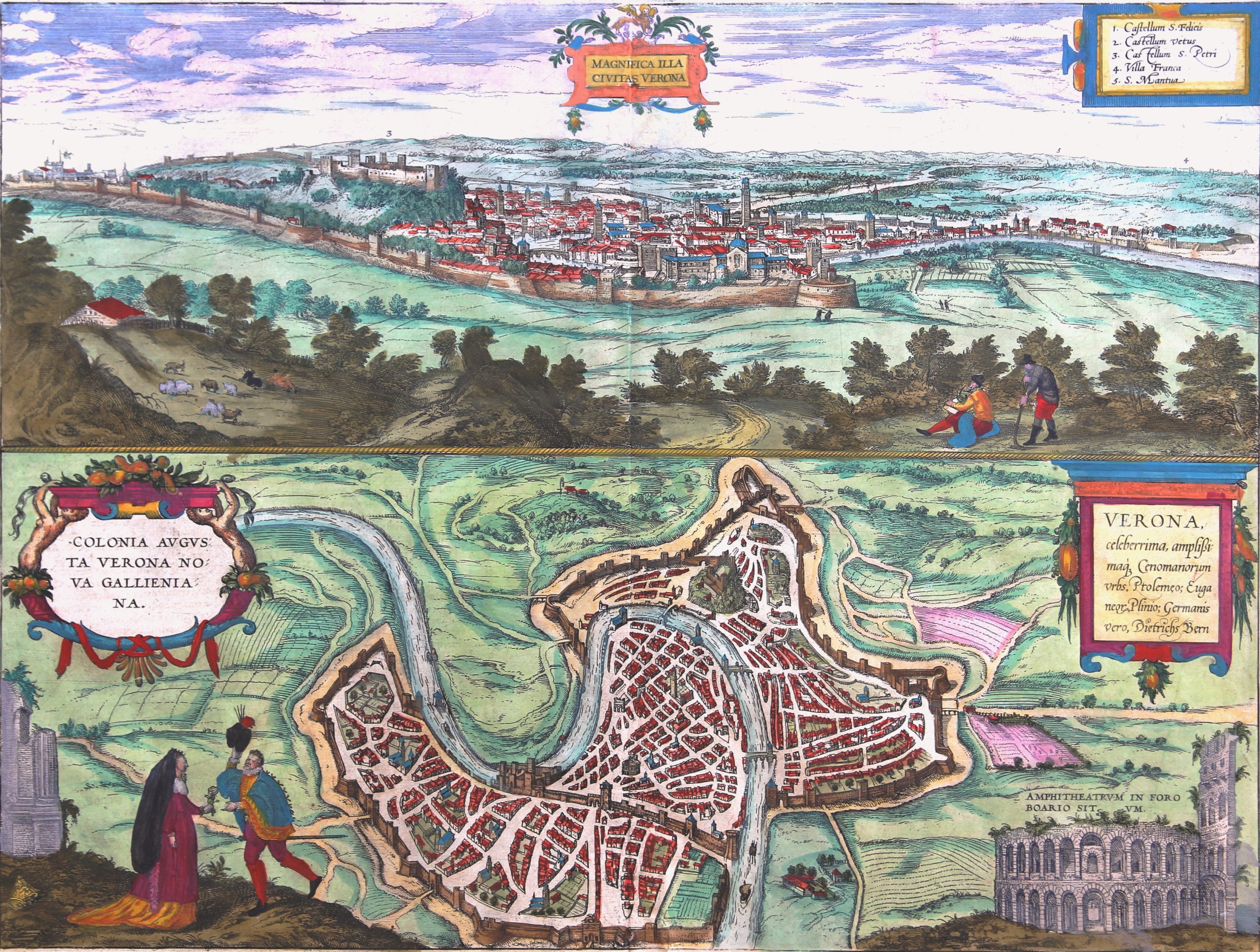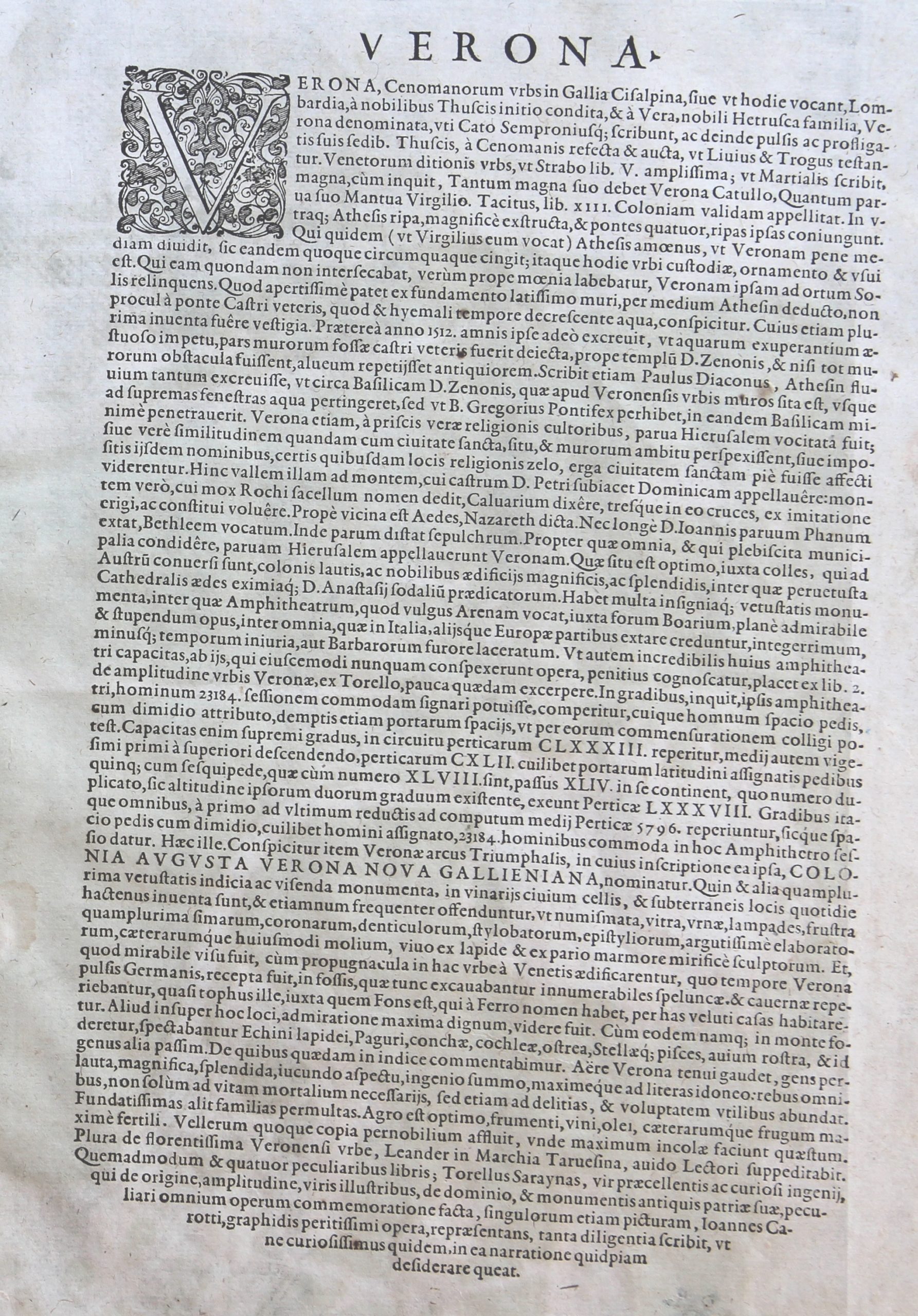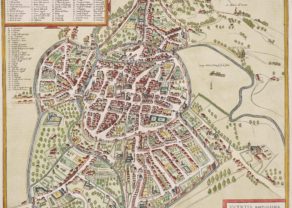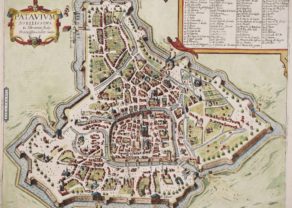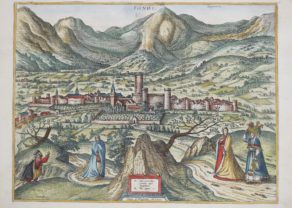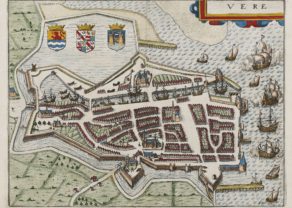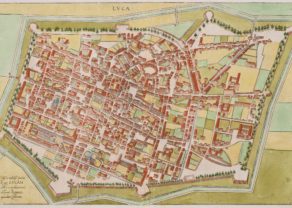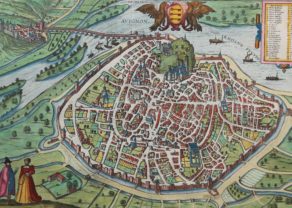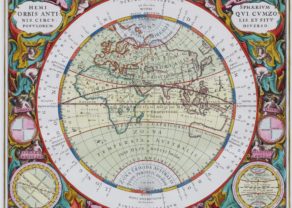Verona – Magnifica Illa Civitas Verona (with) Colonia Augusta Verona Nova Galieniana Verona, Celeberrima, Amplissimaque Cenomanorum Urbs, Ptolemaeo.
Superb double view
Detail
Date of first edition: 1581
Date of this map: 1581
Dimensions (not including margins): 33 x 47 cm
Dimensions (including margins): 41,3 x 53,1 cm
Condition: Very good. Copper engraving on strong paper and wide margins. Centre fold as published. Small professional restoration at left of centre fold on paper. Old colouring.
Condition rating: A
Verso: text in Latin
Map references: Van der Krogt 4, 4659, State 1; Fauser, 4659; Taschen, Braun and Hogenberg, p.256
From: Civitates Orbis Terrarum,, Liber tertius. Cologne, Gottfried von Kempen, 1581; Van der Krogt 4, 41:1.3
In stock
Verona commented by Braun (on verso)
“It has many ancient monuments, including a round theatre that is called the Arena; it stands on the cattle market and is a wonderful and very large structure, which despite its age has not fallen half into ruins or been destroyed by the attacks of foreign peoples, but has survived intact to an extent rarely found in Italy or anywhere else in Europe. In order that those who have never seen the like may better understand the width of his unbelievably large arena, I would like to quote further from Torelli’s second volume: it has been determined that 23,184 people can be comfortably seated on the tiered steps of the theatre.”
TRANSLATION OF CARTOUCHE BOTTOM RIGHT: Verona, most famous and most important city of the Cenomani according to Ptolemy, of the Euganei according to Pliny; Dietrich’s Bern to the Germans.
Taschen on Verona
Verona is illustrated twice on the same page. The upper view shows the city from a slight elevation from the north, looking across the Adige, while the bird’s-eye perspective below offers a plan view of the city from the south. The upper prospect emphasizes the Castel San Pietro (3, left), expanded by the Visconti in the 15th century, and the city’s many family and defensive towers. The lower illustration includes a detailed view of the amphitheatre, built around the same time as the Coliseum in Rome (c. AD 50). This Arena, which holds some 22,000 people, is today the venue for the annual Verona Opera Festival. The city became a Roman colony in 89 BC and in AD 489 the residence of Theodoric the Great, king of the Ostrogots, who inspired the figure of Dietrich von Bern (Bern signifying “Verona”) in German legend. For many Verona is renowned as the fictional setting of William Shakespeare’s famous tragedy Romeo and Juliet .
Related items
-

Vicenza
by Georg Braun and Frans HogenbergPrice (without VAT, possibly to be added): €900,00 / $999,00 / £801,00 -

Padua (Padova) – Patavium noblissima
by Georg Braun and Frans HogenbergPrice (without VAT, possibly to be added): €1 200,00 / $1 332,00 / £1 068,00City of education and science
-

Fondi (Lazio)
by Georg Braun and Frans HogenbergPrice (without VAT, possibly to be added): €750,00 / $832,50 / £667,50
